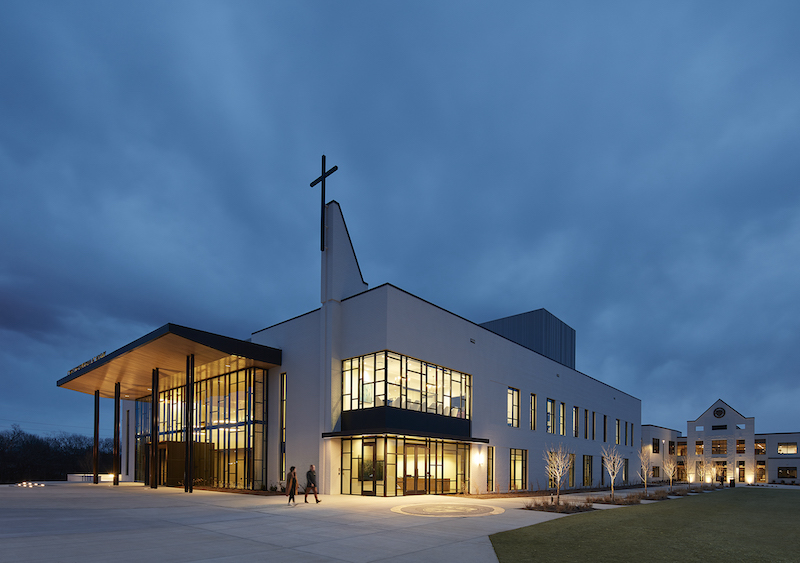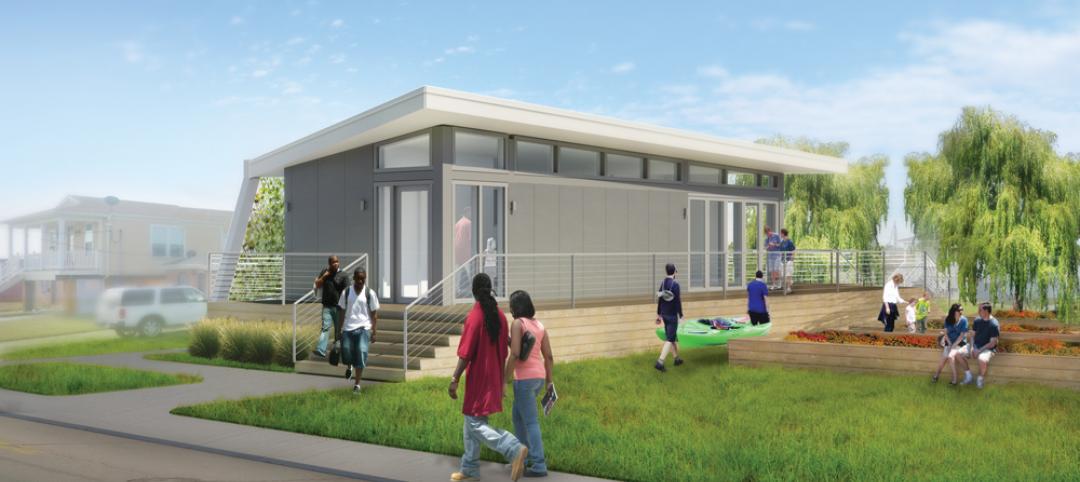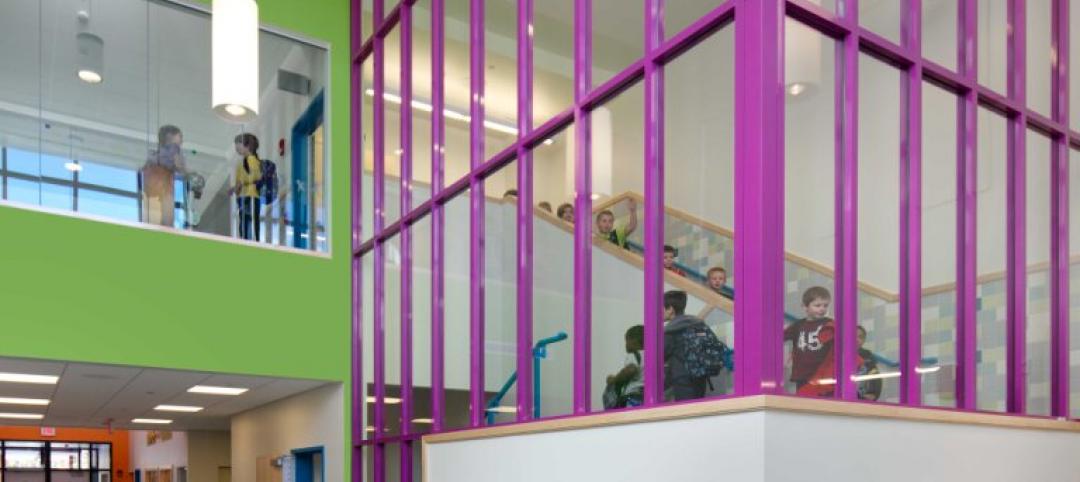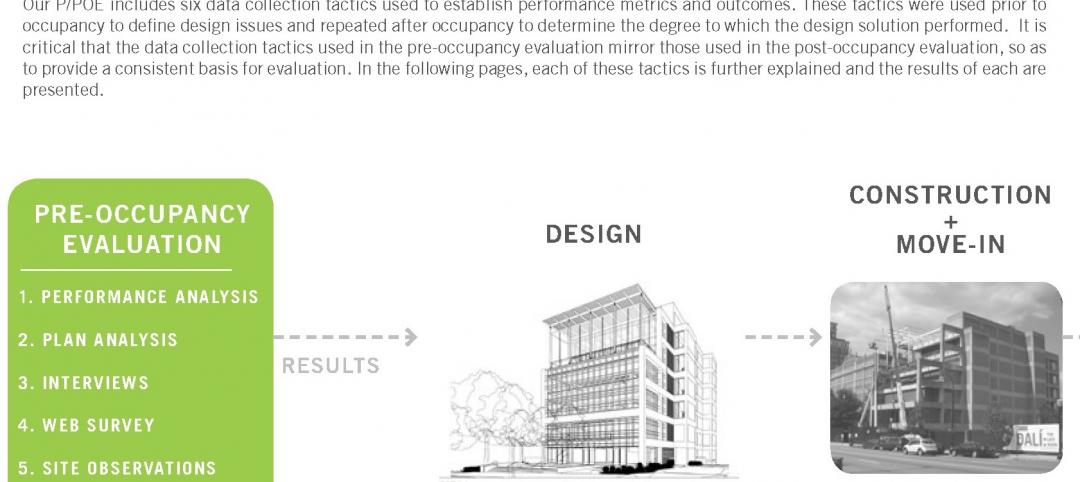Hastings Architecture has recently completed two new K-12 projects in Nashville; the Christ Presbyterian Academy Fine Arts Center and the Montgomery Bell Academy H. Frank Burkholder Wellness Center. While the projects have vastly different programs, they’re both critical components on their respective campuses.
The 45,000-sf Fine Arts Center was designed to establish a new front door to Christ Presbyterian Academy’s campus. The project is part of a larger master plan and is sited to enclose and define a new central quad. This new central quad helps transform the 58-acre campus from being automotive-centered to one that embraces the human scale.
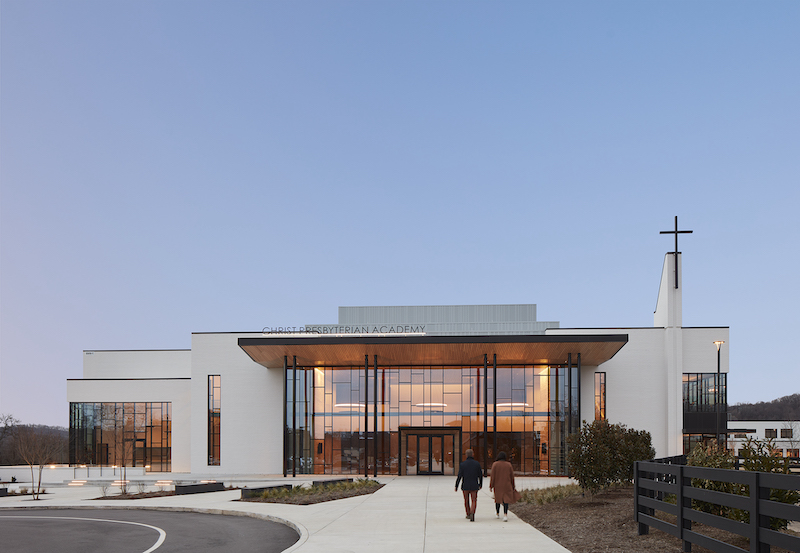
Brick massing wraps the building base and references existing campus scale and materiality. An undulating corrugated metal panel, meant to evoke a stage curtain, sheaths the theater house and fly tower. The brick mass opens up at the main entry to reveal a transparent lobby capped with a wooden canopy. The lobby’s glazing pattern introduces a contemporary vocabulary unique to the campus.
The lobby blurs the line between indoors and outdoors with natural materials and abundant natural light to invite curiosity and wonder through both the grand scale of the space and its sculptural gestures. An expansive light monitor diffuses light throughout the lobby and furthers the connection between indoors and out. At night, light from within transforms the building into a glowing lantern, placing the venue’s activity on display.
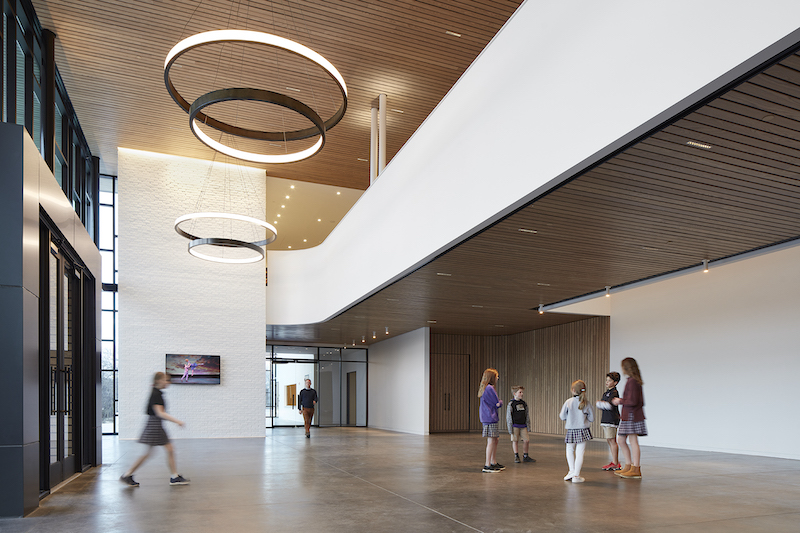
In total, the building comprises a 550-seat theatre, a black box theatre, makeup and dressing rooms, a costume shop, a scene shop, a green room, administrative offices, and art department offices.
The build team also included Ragan Smith (civil engineer), Civil Site Design Group (landscape architect), EMC Structural Engineers (structural engineer), C. Thomasson Associates (MEP engineer), and Solomon (general contractor).
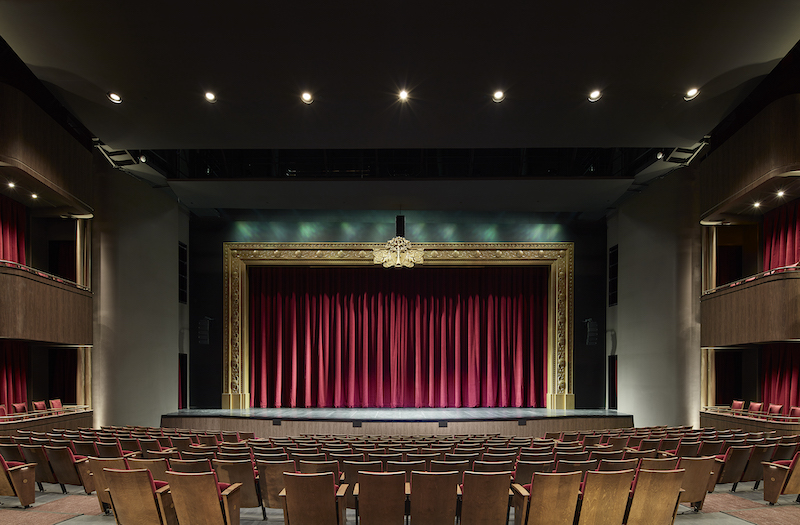
Montgomery Bell Academy H. Frank Burkholder Wellness Center

The second Nashville project recently completed by Hastings is the 200,000-sf H. Frank Burkholder Wellness Center on the Montgomery Bell Academy campus. The project was designed to support both mental and physical health
The new center strategically cloaks the mass and scale of interior spaces while still carrying forward the campus’ architectural and formal language. It includes space to gather, host, meet, study, perform, meditate, learn, play, practice, and compete. The project’s interiors do not have the aesthetics of traditional athletics programs, but instead attempt to create a more cerebral discussion about holistic wellness.
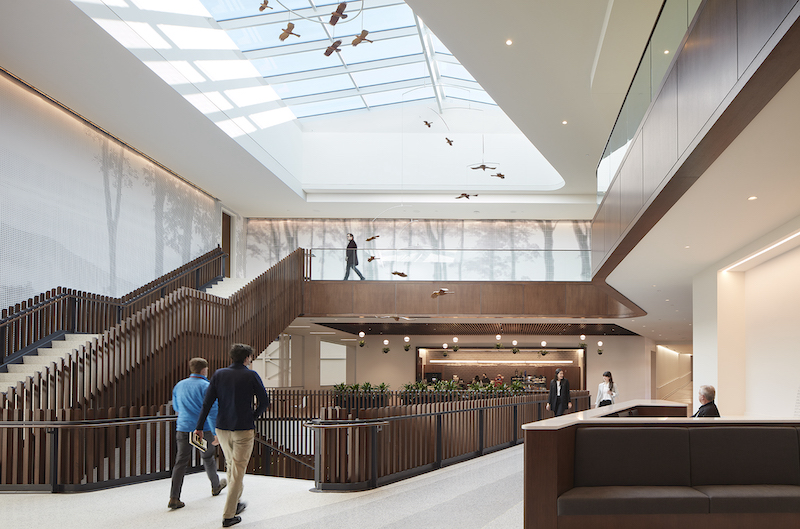
Included in the new Wellness Center is a 1,200-seat event center; a three-court fieldhouse; a double-height indoor practice field; a golf center; a squash center; a dedicated wrestling gym; a fitness center; locker rooms; training facilities; offices for coaches and administrators; and yoga, meditation, screening, meeting, and instructional classrooms.
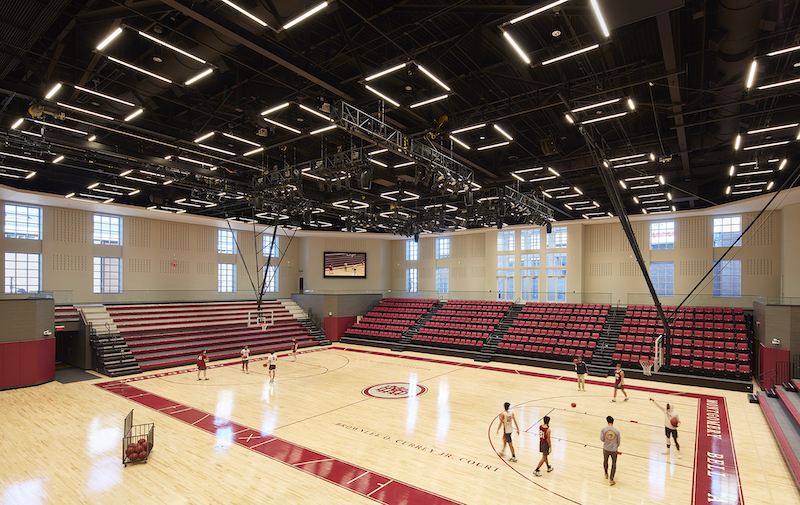
The Center has efficient building systems to save an estimated 20% on annual energy costs. High efficiency and low-flow plumbing fixtures reduce potable water consumption by an estimated 35% annually. The project is pursuing LEED Gold certification.
The build team also included Barge Cauthen & Associates (civil engineer), HDLA (landscape architect), EMC Structural Engineers (structural engineer), Smith Seckman Reid (MEP engineer), and Brasfield & Gorrie (general contractor).

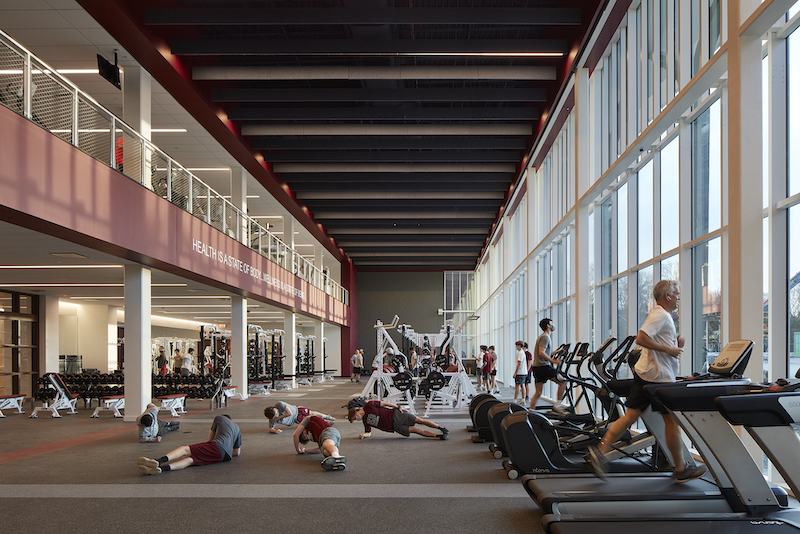

Related Stories
| Oct 26, 2014
Study asks: Do green schools improve student performance?
A study by DLR Group and Colorado State University attempts to quantify the student performance benefits of green schools.
| Oct 21, 2014
Check out BD+C's GreenZone Environment Education Classroom debuting this week at Greenbuild
At the conclusion of the show, the modular classroom structure will be moved to a permanent location in New Orleans' Lower 9th Ward, where it will serve as a community center and K-12 classroom.
| Oct 16, 2014
Perkins+Will white paper examines alternatives to flame retardant building materials
The white paper includes a list of 193 flame retardants, including 29 discovered in building and household products, 50 found in the indoor environment, and 33 in human blood, milk, and tissues.
Sponsored | | Oct 16, 2014
Mill Brook Elementary School colors outside the lines with creative fire-rated framing solution
Among the building elements contributing to the success of the elementary school’s public learning areas is a fire-rated stairwell that supports the school’s vision for collaboration. HMFH Architects designed the stairwell to be bright and open, reflecting the playful energy of students. SPONSORED CONTENT
| Oct 15, 2014
Harvard launches ‘design-centric’ center for green buildings and cities
The impetus behind Harvard's Center for Green Buildings and Cities is what the design school’s dean, Mohsen Mostafavi, describes as a “rapidly urbanizing global economy,” in which cities are building new structures “on a massive scale.”
| Oct 12, 2014
AIA 2030 commitment: Five years on, are we any closer to net-zero?
This year marks the fifth anniversary of the American Institute of Architects’ effort to have architecture firms voluntarily pledge net-zero energy design for all their buildings by 2030.
| Oct 9, 2014
Regulations, demand will accelerate revenue from zero energy buildings, according to study
A new study by Navigant Research projects that public- and private-sector efforts to lower the carbon footprint of new and renovated commercial and residential structures will boost the annual revenue generated by commercial and residential zero energy buildings over the next 20 years by 122.5%, to $1.4 trillion.
| Sep 29, 2014
Living Building vs. LEED Platinum: Comparing the first costs and savings
Skanska USA's Steve Clem breaks down the costs and benefits of various ultra-green building standards and practices.
| Sep 24, 2014
Architecture billings see continued strength, led by institutional sector
On the heels of recording its strongest pace of growth since 2007, there continues to be an increasing level of demand for design services signaled in the latest Architecture Billings Index.
| Sep 22, 2014
4 keys to effective post-occupancy evaluations
Perkins+Will's Janice Barnes covers the four steps that designers should take to create POEs that provide design direction and measure design effectiveness.


